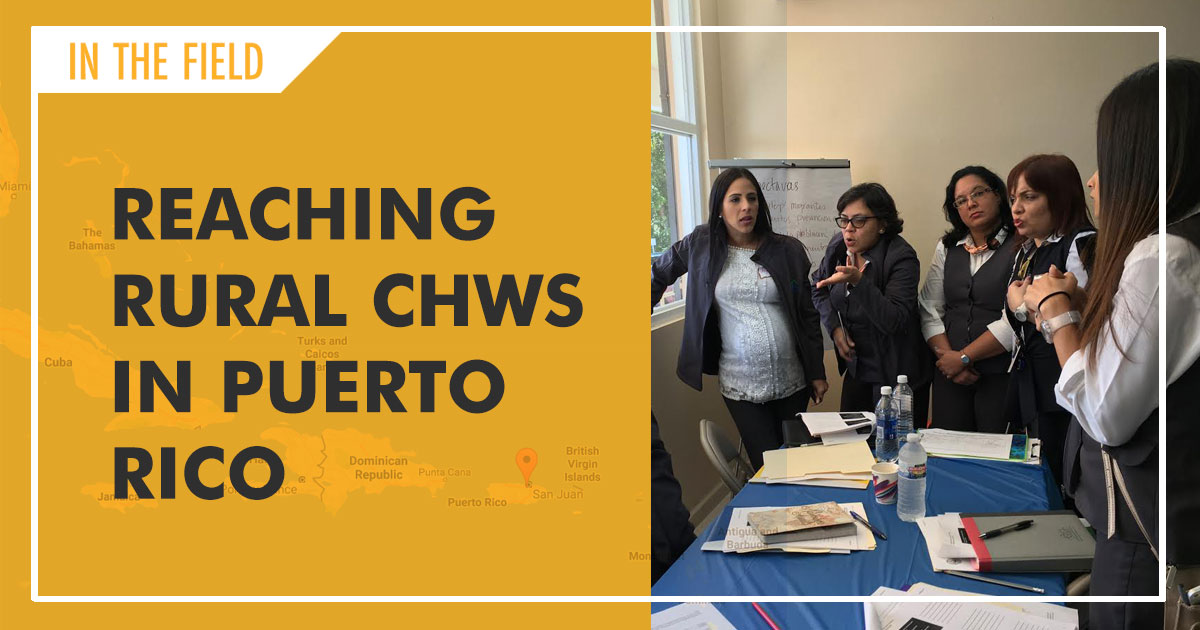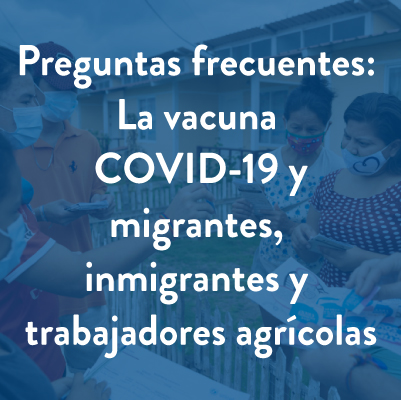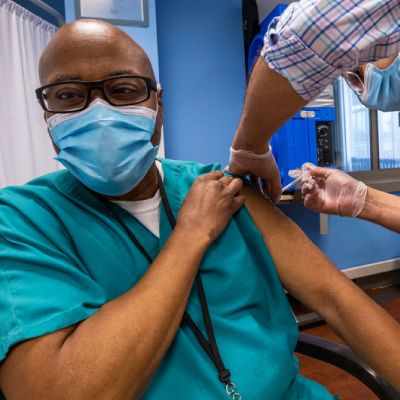- Who We Are
- Clinician Employment
- Publications
- Witness to Witness (W2W)
- El Premio Kugel & Zuroweste a la Justicia en la Salud
- Your Voice Matters: Photovoice Project
Thu, 04/20/2017 | by Alma Galván


[Editor’s note: What does it take to bring our worker safety and health programs to Puerto Rico? Here, MCN’s Alma Alma Galván, MHC, takes us through a daylong workshop during her recent trip to the island.]
On Thursday, April 6th, I had the pleasure of leading a workshop with Jose Rodriguez, MD, in Lares, a town in the heart of Puerto Rico well known for the coffee they produce. The goal of the workshop was the equip Community Health Workers (CHWs), with the tools and resources to educate their agricultural worker patients on worker safety and health, including on pesticides and chemical safety. Dr. Rodriguez, the Medical Director of Hospital General Castañer and a longtime friend of and consultant for MCN, co-facilitated the training. It was an honor to work with such a knowledgeable and caring person, and with both of us at the helm, the workshop was a great success.
The workshop was hosted by Dr. Francisco Ball, the Chief Medical Officer of Centro de Salud de Lares, Inc., who recognized the health center’s promotores de salud and the community at large could benefit greatly from the additional training. The workshop covered chemical safety and pesticides, what to do in case of exposure, the Environmental Protection Agency’s Worker Protection Standard, and worker rights and responsibilities. The workshop was a part of MCN’s Worker Safety and Health Outreach Program, supported by the Occupational Safety and Health Administration (OSHA) Susan Harwood Grant program.
In all, 32 CHWs from three Federally Qualified Health Centers that are located in very remote parts of Puerto Rico got together for this workshop. A group of 12 CHWs from Salud Integral en la Montaña, accompanied by Dr. Ada Santos, Medical Director, and Assistant Director Dr. Adaliz Torres, had to travel two hours to get to the workshop. Like Castañer, Salud Integral en la Montaña serves many agricultural workers. Located in Naranjito, the region’s primary products are coffee and tobacco. Participants from Hospital General Castañer did not have an easy journey to the workshop, either, since they had to travel an hour to get there. The rest of the participants were from Centro de Salud de Lares, one of two health centers in Lares County, Puerto Rico. It is part of the Centro De Salud De Lares Health Centers network, and it has been operating for 30 years. Although the participants from Lares did not have to travel far, Lares, too, primarily hosts a rural population and has a focus on agriculture.
Even though the group was large, Dr. Rodriguez and I managed to share our information using participatory adult education strategies so that participants can utilize some of those same exercises on their own and with their patients. All of them were very engaged in the activities, as you can see in the pictures; during one activity, I even joked about how they had trouble finishing up their answers and letting it go from their station to the next, so the second station could contribute. Evy Colon, Lares health educator and Zika program coordinator, volunteered to collect and write all the group ideas of how to reach out for different type of workers, which I will distribute to all the entire group -- an ongoing piece of the workshop that is not very common. All of the participants were very pleased to receive an eight-hour training certificate for their participation and my new friend Dr. Rodriguez and I were very pleased to have brought the workshop to such enthusiastic and warmth (calidos) committed boricuas.
Like what you see? Amplify our collective voice with a contribution.
Got some good news to share? Send it to us via email, on Facebook, or on Twitter.
Return to the main blog page or sign up for blog updates here.







